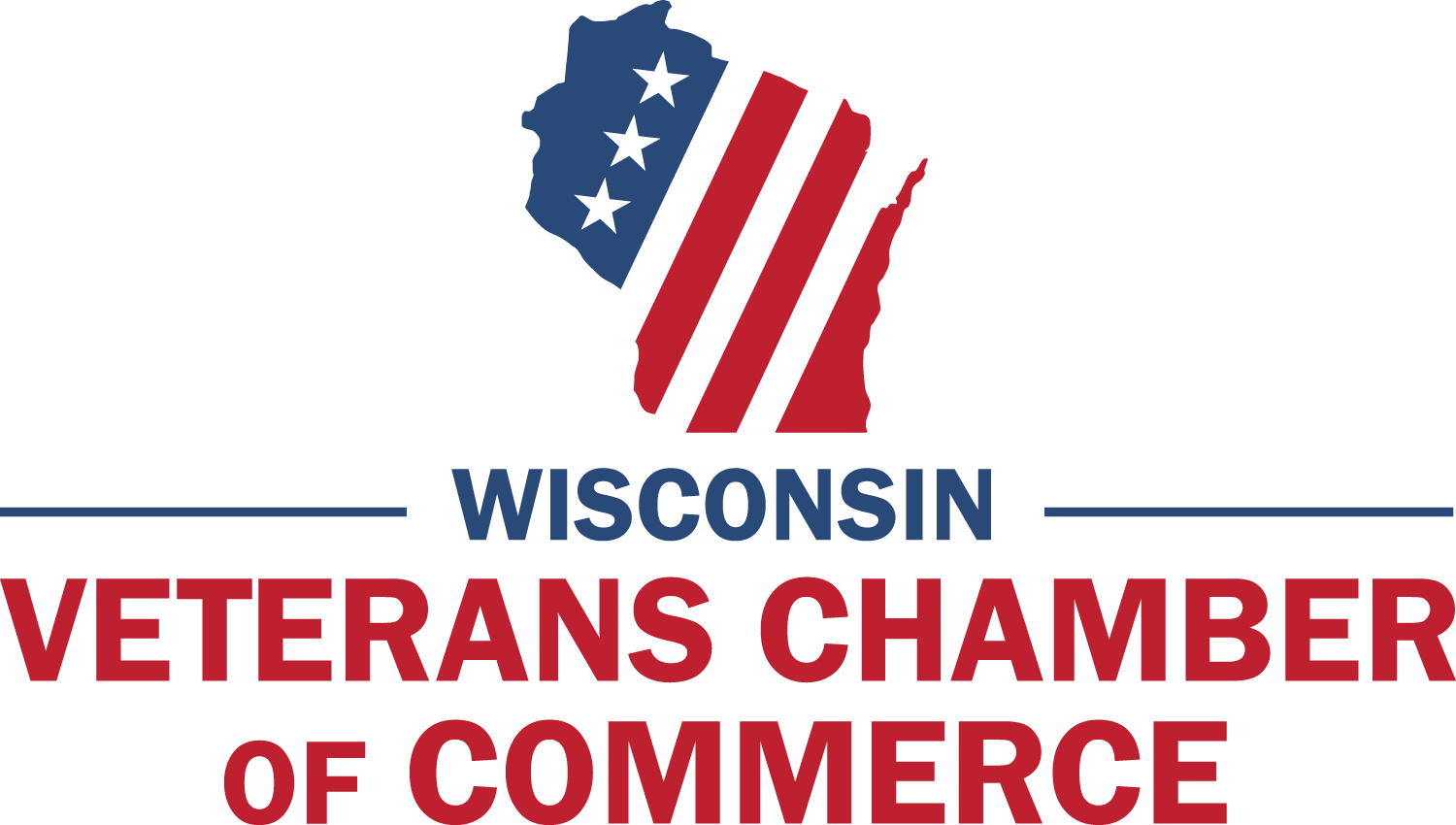WVCC - Understanding Wisconsin Veteran
Business Owners
By Niki Thies - WVCC Communications Manager
The Wisconsin Veteran Chamber of Commerce (WVCC) is an organization that supports veteran-owned businesses throughout the state. As of 2020, there were over 57,000 veteran-owned businesses in Wisconsin, contributing over $20 billion to the state's economy. The WVCC provides resources, networking opportunities, and advocacy for these business owners. Understanding the needs and challenges faced by veteran entrepreneurs is crucial to supporting their success. This blog will delve into the work of the WVCC and the importance of supporting Wisconsin's veteran-owned businesses.
Importance of supporting Wisconsin Veteran Owned Businesses
The importance of supporting Wisconsin's veteran-owned businesses cannot be overstated. Here are just a few reasons why:
1. Economic Impact: As previously mentioned, veteran-owned businesses in Wisconsin generate over $20 billion for the state's economy. By supporting these businesses, we are not only helping individual entrepreneurs but also contributing to the overall economic growth of the state.
2. Job Creation: Veteran-owned businesses also play a critical role in job creation. These businesses often hire fellow veterans, providing employment opportunities for those who have served our country. Supporting these businesses also means supporting job creation for our state.
3. Service to the Community: Veterans have a long-standing tradition of serving their communities, and many veteran-owned businesses continue that tradition. These businesses often give back to the community through volunteer work, donations, and other forms of service.
4. Unique Perspective: Veterans bring a unique perspective to the business community. Through their experiences in the military, they have developed valuable skills and attributes such as leadership, discipline, and resilience that can be applied to their businesses. Supporting veteran-owned businesses means tapping into this perspective and benefiting from it.
5. Honor and Respect: Finally, supporting veteran-owned businesses is also a way to honor and respect the sacrifices made by those who have served our country. By supporting these businesses, we are showing our appreciation for their service and the contributions they continue to make to our communities and our economy.

Statistics on Wisconsin's Veteran-Owned Businesses
Wisconsin has a significant number of veteran-owned businesses, and here are some statistics that showcase their impact:
1. Approximate Number: There are over 65,000 veteran-owned businesses in Wisconsin, according to the Small Business Administration. These businesses employ over 100,000 people and generate more than $20 billion in annual revenue.
2. Federal Contracting: In 2019, veteran-owned small businesses in Wisconsin were awarded over $600 million in federal contracts. This accounted for 3.5% of all federal contracting dollars awarded to Wisconsin companies, according to the US Department of Veteran Affairs.
3. Minority Business: Of the veteran-owned businesses in Wisconsin, 23% are owned by minorities, according to the American Community Survey. This statistic is higher than the national average of veteran-owned minority businesses at 20%.
4. Entrepreneurial Growth: Wisconsin ranked fourth in the country for entrepreneurial activity among veterans, according to the National Veteran-Owned Business Association. This demonstrates the state's support of veteran entrepreneurs and their ability to succeed in starting and growing their businesses.
5. Industry Diversity: Wisconsin's veteran-owned businesses are diverse, with the top industries being construction, professional services, fitness and retail trade. This diversity reflects the versatility and adaptability of veteran entrepreneurs in various industries.

Understanding the challenges faced by Veteran Owned Businesses
Veteran-owned businesses face unique challenges that are often different from their non-veteran counterparts. Understanding these challenges is crucial to creating effective support programs for the veteran entrepreneurial community.
Here are some of the significant challenges faced by veteran-owned businesses in Wisconsin:
1. Lack of Access to Capital: Veteran-owned small businesses often struggle to obtain the necessary funding for their ventures. This struggle can be attributed to limited network connections, lower credit scores, and shorter business histories. Access to capital is essential to start and sustain a business, and without it, veteran-owned businesses face significant challenges.
2. Transitioning to Civilian Life: Many veterans who pursue entrepreneurship struggle to make the transition from military to civilian life. In the military, they are accustomed to following strict procedures and protocols, but in the business world, they face a more unpredictable environment. Additionally, veterans may struggle to communicate their military experience and skills in a way that is relevant and understandable to their civilian counterparts.
3. Finding Skilled Talent: Veteran-owned businesses require skilled talent to operate effectively. However, finding and attracting highly skilled employees can be a challenge for smaller businesses. Typically, startups and small businesses do not have large budgets to offer competitive salaries or benefits packages, which can be a major hurdle in hiring top talent.
4. Managing Growth: Many veteran-owned businesses face significant challenges when trying to grow their businesses. The complexities of scaling and expanding a business can be overwhelming, especially for those who lack the necessary business experience. For veteran entrepreneurs, this can be particularly challenging, as they may have limited business training and resources to draw upon. By understanding the unique challenges faced by veteran-owned businesses, policymakers, business leaders, and other stakeholders can develop more effective programs and initiatives to support these entrepreneurs in Wisconsin.

Resources for Veteran Entrepreneurs in Wisconsin
To support the growth and success of veteran-owned businesses in Wisconsin, there are a variety of resources available.
Here are some key resources for Wisconsin veteran entrepreneurs:
1. Wisconsin Department of Veterans Affairs: The Wisconsin Department of Veterans Affairs provides a variety of resources for veteran-owned businesses, including assistance with business planning, funding, and networking opportunities.
2. Small Business Development Centers: Wisconsin is home to a network of Small Business Development Centers (SBDCs) that offer support services for entrepreneurs, including business planning, financial analysis, and market research.
3. Wisconsin Veterans Chamber of Commerce (WVCC): The WVCC is a statewide organization that provides support, education, and advocacy to veteran-owned businesses in Wisconsin. The WVCC hosts events and workshops, offers networking opportunities, and advocates for policies that support the growth of veteran-owned businesses.
4. Veterans Business Outreach Center (VBOC): The VBOC provides business training, counseling, and mentoring to veteran entrepreneurs in Wisconsin. They help with business planning, financing, and other aspects of starting and growing a business.
5. SCORE Wisconsin: SCORE is a national network of volunteer business mentors who provide free advice and support to entrepreneurs. SCORE Wisconsin offers mentoring, workshops, and other resources to help veteran entrepreneurs succeed. By taking advantage of these resources and others like them, veteran entrepreneurs in Wisconsin can overcome the unique challenges they face and build successful businesses that contribute to their communities and the state's economy.
6. Partnerships with Veteran Owned Businesses can benefit both parties Veteran-owned businesses in Wisconsin can benefit greatly from partnerships with other businesses. These partnerships can provide access to new customers, markets, and resources that may not be readily available otherwise.

Here are six potential partnership opportunities for veteran-owned businesses in Wisconsin:
1. Supplier Diversity: Many large corporations have supplier diversity programs that aim to increase the participation of businesses owned by minorities, women, and veterans in their supply chains. Becoming a supplier to these companies can open up new markets and opportunities for growth.
2. Joint Ventures: A joint venture is a partnership between two or more businesses that combines their resources and expertise to pursue a common goal. This can allow veteran-owned businesses to take on larger projects or enter new markets that may
have previously been out of reach.
3. Mentoring: Mentoring partnerships can provide guidance and support to veteran owned businesses as they navigate the challenges of entrepreneurship. They can connect veterans with experienced business owners who can provide advice, networking opportunities, and strategies for success.
4. Collaborative Marketing: Partnering with other businesses to create joint marketing campaigns can help to increase visibility and awareness for businesses. Collaborating with businesses that have a similar target audience can be especially effective.
5. Subcontracting: Veteran-owned businesses can partner with larger companies as a subcontractor to provide specialized services or expertise. This can not only bring in additional revenue but also build relationships with potential customers.
6. Strategic Alliances: A strategic alliance is a long-term partnership between two or more businesses that work together on projects, share resources, and collaborate to achieve mutual goals. These partnerships can be highly beneficial for veteran-owned businesses looking to expand their reach and capabilities.
Conclusion: Investing in Veteran Owned Businesses benefits everyone
Investing in veteran-owned businesses is not only a smart business decision but also a way to support those who have served our country. As we have discussed in this article, veteran-owned businesses offer unique advantages and perspectives that can benefit both the business and its customers. By partnering with veteran-owned businesses, companies can gain access to new markets, resources, and customer bases. These partnerships can lead to mutually beneficial outcomes and help to build strong relationships between businesses. Furthermore, investing in veteran-owned businesses goes beyond just the potential returns on investment. It is a way to support those who have sacrificed for our country and help to create opportunities for these individuals to thrive in their post-military careers.
In conclusion, investing in veteran-owned businesses is not only a wise business decision but also a way to support those who have served. With the numerous partnership opportunities available, there has never been a better time to explore the possibilities of investing in veteran-owned businesses.

